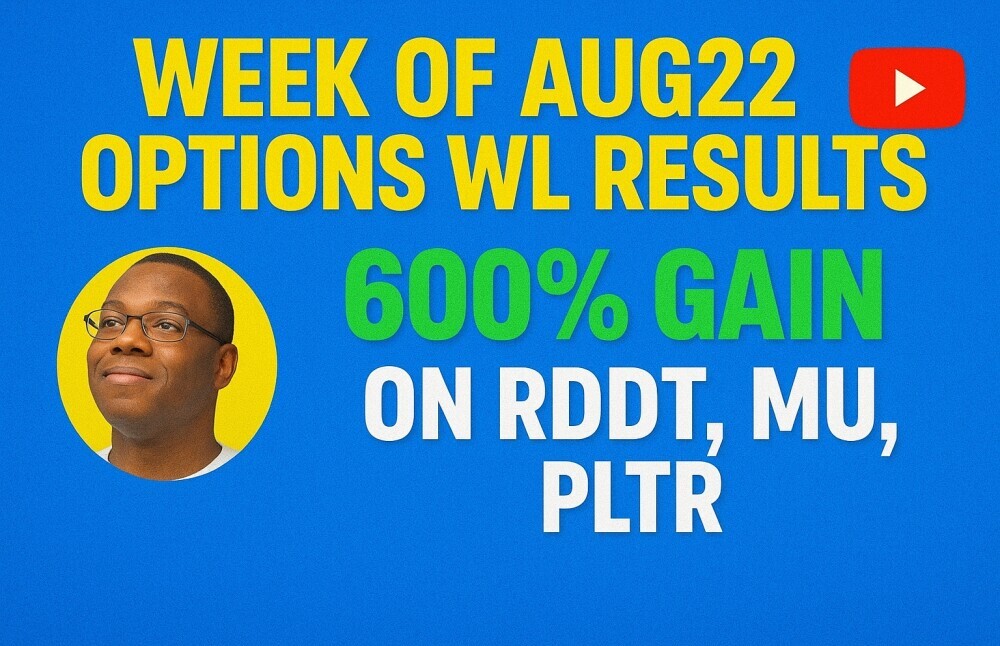If you’ve ever wondered what exactly happens when you hear people talk about stocks rising or falling, you’re not alone. The stock market might sound mysterious or even intimidating when you’re just getting started, but at its core, it’s simply a place where people can buy and sell pieces of companies. I’ll break down the main ideas, how everything fits together, and what actually happens when you invest in stocks.

Table of Contents
What Is the Stock Market?
The stock market is a network of exchanges where people buy and sell shares of companies. A share, or stock, is just a small ownership piece of a company. So when you buy a share of a business, you become a part-owner, which is pretty eye-catching if you think about it.
Major stock exchanges like the New York Stock Exchange (NYSE) or the Nasdaq are where stocks are listed and traded. Companies put their shares up for sale on these exchanges to raise money for things like expanding their business, launching new products, or paying off debts. In exchange for letting everyday people (like me and you) buy a piece of their company, businesses get the funds they need to grow.
This whole setup helps keep the economy running. Investors get the chance to earn money when companies do well, and businesses get access to cash so they can create jobs, grow, and think outside the box as they work on new ideas.
How Stocks Are Bought and Sold
Buying and selling stocks isn’t as complicated as it seems. You don’t need to physically go to a stock exchange. Instead, almost everything happens online through brokers and trading platforms.
- Broker: A middleman that connects buyers and sellers. Most people now use apps or online sites, such as E*TRADE, Robinhood, or Fidelity, to manage their investments.
- Stock Ticker Symbol: A short code that uniquely identifies a company’s stock (like AAPL for Apple or MSFT for Microsoft).
- Order Types: There are several basic ways to buy or sell stocks: market orders (buy or sell at the current price) and limit orders (set the price you’re willing to pay or accept).
When you make a trade, your order goes to the exchange, where it’s matched with someone interested in doing the opposite (if you’re buying, someone is selling, and vice versa). This matching is handled electronically and happens extremely fast, usually in fractions of a second.
Why Do Stock Prices Change?
Stock prices move around constantly, mostly due to supply and demand. If more people want to buy a stock than sell it, the price goes up. If more want to sell than buy, the price drops. Many things influence this push and pull, including:
- Company Performance: If a business announces good sales or launches a new product everyone loves, its shares often become more attractive and go up in value.
- Economic News: Reports about the wider economy—for example, new jobs being created or a drop in consumer spending—can make investors more optimistic or nervous, affecting stock prices.
- Trends and Hype: Sometimes stocks move because of trends, rumors, or just the hype. Social media and news can play a big part here.
- Global Events: Wars, natural disasters, or political changes can shake up markets worldwide.
The stock market is like a giant voting machine where everyone’s opinion constantly shifts prices up and down. That’s why things can get wild, especially during breaking news events or sudden announcements.
How Do People Make (or Lose) Money in the Stock Market?
There are two main ways investors try to make money in stocks: through capital gains and dividends.
- Capital Gains: This simply means you sell a stock for more than you paid for it. Say you bought a share for $50 and sold it later for $70, the $20 difference is your gain.
- Dividends: Some companies share part of their profits with shareholders by issuing cash payments, usually every quarter. Not all companies do this, but many big, established ones, such as those in the SP500, pay regular dividends.
Just as you can make money, you can lose money too. If the price drops and you sell your shares, you’ll get back less than you put in. That’s why keeping an eye on your investments is really important, and why most experts suggest you don’t put all your cash into just one stock.

What Affects the Stock Market as a Whole?
When people say “the stock market was up today,” they’re usually talking about major indexes. These are groups of stocks that represent a chunk of the market. The three most-watched in the U.S. are:
- Dow Jones Industrial Average (the Dow): Tracks 30 large U.S. companies.
- SP500: Follows 500 of the top companies in the U.S. and is a main snapshot of the stock market.
- Nasdaq Composite: Made up of over 3,000 companies, including many in tech.
Indexes move up or down depending on how their member stocks are doing. When most of the biggest companies have a bad day, the whole market index can drop, even if some smaller companies do okay. On days when industries like technology or healthcare are especially strong, these movements drive index growth, impacting how the entire market is seen by the public and the media. On the flip side, massive selloffs in just a few big companies can lead to red across the board, even if hundreds of other stocks barely move. These daily swings often tie into overall confidence, as well as investor reactions to unpredictable events. This is why understanding index movements is helpful.
Risks and Things to Watch Out For
Investing in the stock market comes with some real risks. Stock prices can be unpredictable, changing quickly in response to news, economic changes, or company announcements. Market dips can sometimes last longer than expected, even rattling experienced investors. Here are a few things I always keep in mind:
- Volatility: This is just a term for how much and how quickly stock prices move. Some stocks swing a lot, while others are fairly steady.
- Market Corrections: Every so often, the market drops 10% or more from recent highs. It’s a regular part of the process, but it can worry people who aren’t prepared.
- Individual Company Risks: If a business struggles or faces controversy, its shares can lose value in a hurry.
- Emotional Investing: Making choices based on fear or excitement rather than facts often leads to bad outcomes.
Careful research helps buyers make smarter choices. Getting comfortable with the basics helps you tune out panic or hype and stick to your long-term plans. Part of keeping an eye out for these challenges is learning from trusted sources, talking to more experienced investors, and watching market trends instead of jumping at every headline.
Getting Started: Steps for Beginners
If you’re interested in buying your first stock, here’s a quick roadmap to make it less overwhelming:
- Set Up a Brokerage Account: Choose a well-reviewed broker. Most offer free trades and educational tools to help you start.
- Do Some Research: Learn about companies that catch your interest, read their quarterly reports, and check out recent news. Even just starting with a quick Google search is useful!
- Decide How Much to Invest: Only use money you can afford to leave invested for a while. Trying to “get rich quick” with stocks usually sets you up for disappointment.
- Place an Order: Pick a stock you’ve researched, place a market or limit order, and watch how it performs over time. Don’t feel pressured to make big moves right away; even putting a small amount in helps you learn.
- Keep Learning: The market always brings surprises. Watching tutorials, reading blogs, and listening to experienced voices can really make things clearer as you grow your skills.
This step-by-step method makes jumping into the stock market much less intimidating, especially if you start with a small investment to get a feel for things.
Common Questions About the Stock Market
Here are some questions people often ask when they’re new to the stock market:
Question: Can I lose all my money by investing in stocks?
Answer: If you put all your savings into one company, it’s possible to lose it if that business fails. But if you mix your money among several companies (called diversification), your risk drops because it’s spread out.
Question: How much money do I need to start?
Answer: Many brokers now let you begin with any amount, even five or ten dollars. Some even let you buy “fractional shares,” so you can own a portion of a more costly stock.
Question: Do I need to pay attention to the stock market every single day?
Answer: Not at all! Many successful investors only check in monthly or less. The longer you plan to stay invested, the less the daily ups and downs matter.
Question: What’s the difference between the stock market and the economy?
Answer: The stock market is about investor opinions and confidence in companies, while the economy covers jobs, production, and spending. They usually trend together, but they’re not always going in sync.
Smart Tips for Stock Market Success
Once you get the basics down, a few habits can set you up for investing success:
- Think Long-Term: The most successful investors keep their focus on years, not days or weeks. Slow and steady often wins the race.
- Don’t Try to Time the Market: Predicting market highs and lows is nearly impossible to do consistently, so regular investing helps balance things out.
- Keep Learning: The more you know, the sharper your decisions become. Reading, listening to podcasts, and checking books all help step up your knowledge.
- Stay Calm During Drops: The market will dip at times, but making moves based on panic tends to lock in your losses instead of riding out the storm.
Investing in the stock market isn’t just for Wall Street pros—it’s surprisingly accessible thanks to modern technology and abundant resources. Building a solid base now will help you make better decisions down the line as you gain more comfort and experience.
Putting It All Together
The stock market exists to help companies grow and everyday people build wealth. Every share is a tiny part of a real business, and those businesses drive the economy. Whether you’re saving for retirement, a major purchase, or simply want to see how investing works, tracking down more about stocks gives you greater control over your financial future.
It can feel overwhelming when you start, but it gets much less intimidating once you take your first steps. Doing solid research, staying patient, and learning as you go can really give a boost to your confidence and outcomes as you put your money to work.
No matter your background, learning the basics puts you in a better spot to make smart choices. Keep an open mind, ask questions, and remember that consistency beats quick wins. Over time, you just might be surprised at how approachable the world of stocks really is.

Hold a Master Degree in Electrical engineering from Texas A&M University.
African born – French Raised and US matured who speak 5 languages.
Active Stock Options Trader and Coach since 2014.
Most Swing Trade weekly Options and Specialize in 10-Baggers !
YouTube Channel: https://www.youtube.com/c/SuccessfulTradings
Other Website: https://237answersblog.com/